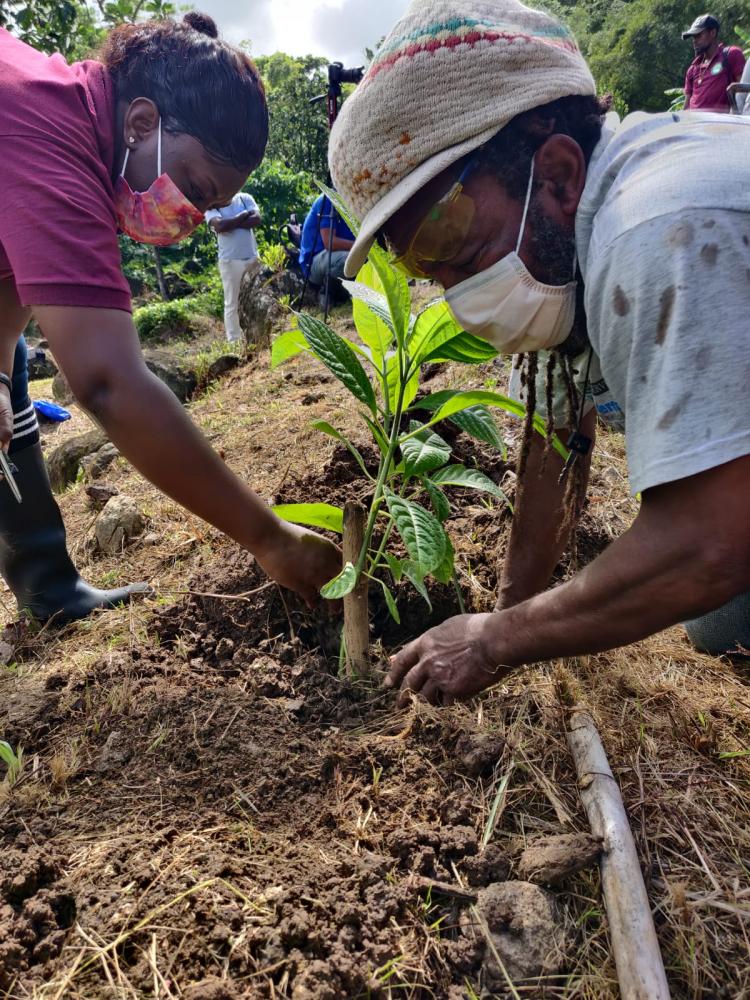CARICOM/IICA AGRICULTURE EXTENSION DELIVERY TRAINING, NOVEMBER-DECEMBER 2021

Extension services play a crucial role in the growth and development of the agricultural sector and rural communities for CARICOM Member States. Extension services are central to exploiting the real potential of agricultural Research and Development (R&D), and therefore serves as a conduit through which the knowledge and innovations generated may be effectively disseminated to producers.
In CARICOM, extension services have traditionally been delivered through centralised and decentralised public-funded agencies. Increasingly however, private agricultural extension has been partially replacing these public-funded initiatives. While the rationale behind private-provided extension in the Region has been driven largely by efficiency concerns, undoubtedly it has ushered in a situation of a vastly underserved demand. Generally, private extension services exist as an input-selling mechanism. As such, some limited extension service may be provided by input suppliers of pesticides and fertilizers to farmers using its supplies.
In this regard, CARICOM has received support from the Inter-American Institute for Cooperation on Agriculture (IICA) Director General, Dr. Manuel Otero, Special Fund for the Caribbean Region to assist in capacity building of a first cohort of 153 Extension Officers from 15 Caribbean countries to support the new Agriculture Agenda being led by the Special Ministerial Task Force on Food Production and Food Security. The Ministerial Task Force which was formed at a CARICOM Heads of Governments meeting in February 2021, is Chaired by Hon. Zulfikar Mustapha, Guyana’s Minister of Agriculture, is task to expand the agriculture sector increasing both intra and extra regional trade.
The virtual Regional Agriculture Extension Training programme will cover the following topics:
a. Sustainable Inclusive Extension
- 1. ICT in Extension
- 2. New Extension Delivery Methodologies
- 3. Tablets, Drones, social media, Traditional tools and Platforms in Extension and Agricultural Technology Transfer
- 4. Agribusiness and Value Chains; Marketing and New Market Intelligence approaches for Food Security, Exports and Rural livelihoods
- b. Sustainable Agricultural Production
- 1. Exploring Renewable energy including solar and bio digesting, climatic and risk modelling, Integrated Water Resources Management.
- 2. Sloping Agricultural Land Technology (SALT) for Crops, livestock and Integrated Farming.
- 3. Best Practices in Climate Resilience – alternatives to conventional pesticide use and GAP waste disposal and environmental protection.
- 4. Appropriate Climate Resilient technologies including silvo-pastorial systems for livestock.
- 5. Sustainable Soil and Land Management.
The Agriculture Extension training will achieve the following:
1. Technical capacity in Sustainable Agricultural Production of Participants enhanced;
2. Extension tools, methods, approaches and networking strengthened;
3. Enhanced resilience of farm systems against climatic and natural risks and emerging food security challenges in promotion and support of SALT (Sloping Agricultural Land Technology) for Livestock and Crops.
4. The Agri-extension app will be promoted and operated in the Caribbean countries.
For more information, please email us at iica.guyana@iica.int